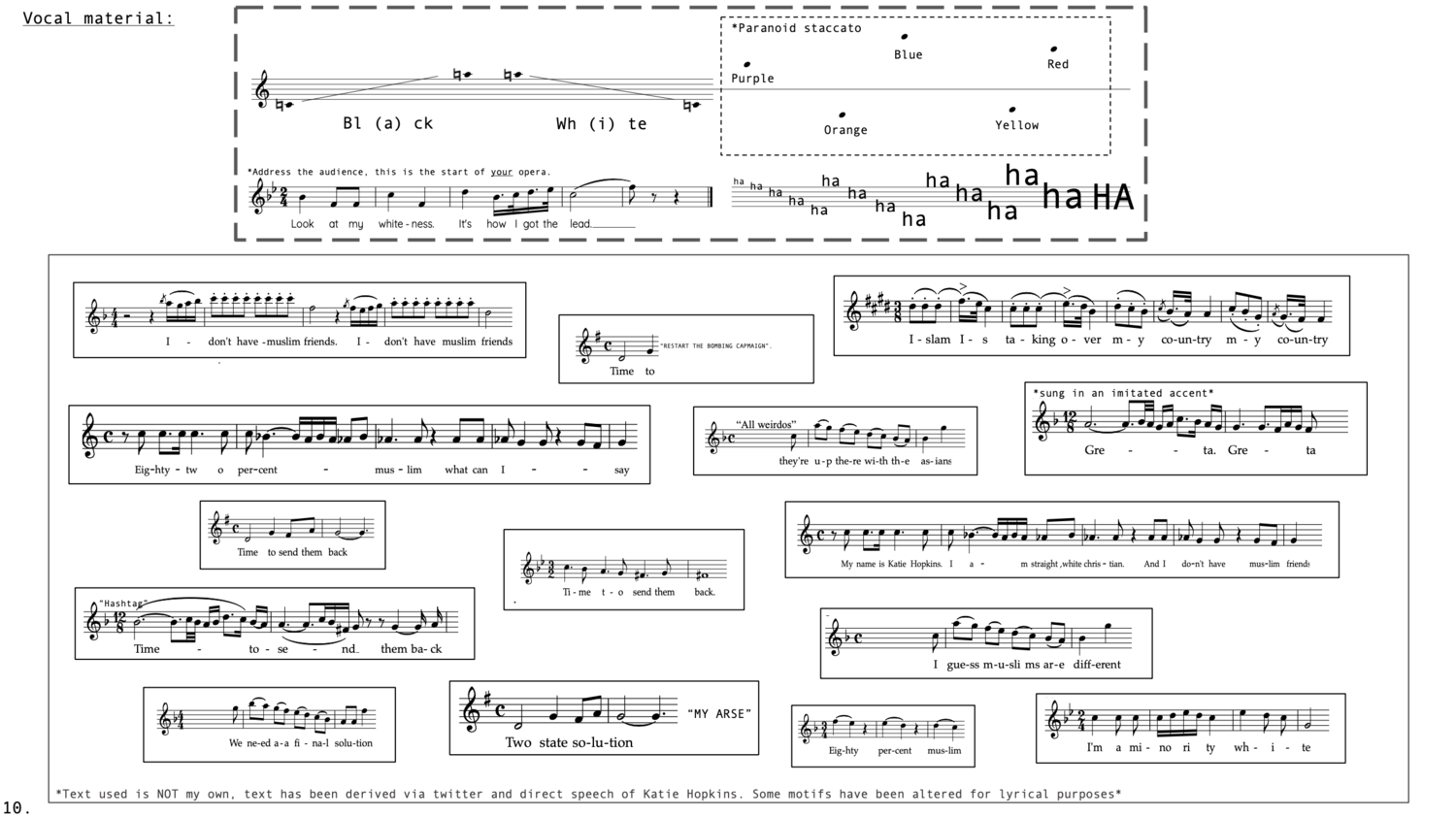CoLab - Day 3 (Wednesday 17th February 2021)
Day three of CoLab began at 11am and we started the session by looking at the work produced by all five groups. There was such an amazing array of work, but two interpretations that I found particularly interesting were ‘Ach, ich fühl’s’ from Die Zauberflöte and ‘Là ci darem la mano’ from Don Giovanni. The performance of ‘Ach, ich fühl’s’ began with a soundscape of voices, depicting the Queen of the Night as a narcissistic, abusive mother, shouting and screaming at Pamina and Pamina weeping at the barrage of abusive. As the aria began, we watched a rigid and twisted interpretative dance, concluding with Pamina stood soaked in the shower, motionless.
The second performance that struck me was ‘Là ci darem la mano’, which is often performed comically in opera productions. Zerlina is almost successfully seduced by Don Giovanni, until he is stopped by Donna Elvira. This comic trope is used repeatedly in productions, despite the next scene where he is discovered to be sexually assaulting Zerlina. To counter this, the group decided to write their own English translation of the duet, showing Zerlina’s reluctance from the very beginning, highlighting the importance of enthusiastic and consistent consent.
After watching all of the videos, I was placed into a group with a countertenor, Garreth Romain and Georgina Taylor, bassoonist. We were set the task of interpreting a new operatic work. Contemporary opera has often been dismissed and Pierre Boulez was reported to say that ‘since Alban Berg’s Wozzeck and Lulu not a single opera worthy of discussion has been composed’(1). Trying to dismiss my own pre-conceptions of contemporary opera, we selected the third movement from ‘Please, listen’ by Laura Boylan (see the score to the right). The movement was called: ‘Reverse racism, does in fact, not exist’. We felt we could adapt the score from cello to bassoon, but more importantly we agreed that the subject matter was extremely important to discuss. Diversity and representation is a chronic issue across the opera industry and a key example of this is the Metropolitan Opera in New York. Despite having a board of 45 members, there are ‘only three Black managing directors. Of the 10 people on its music staff, one is Black; of the 90-member orchestra, two. The Met has presented 306 operas in its 137-year history, none of them by a Black composer’(2).
‘Reverse racism, does in fact, not exist’ consisted of two sections - ‘box one’ and ‘box two’. All material in ‘box one’ was to be completed before starting the material in ‘box two’, which consisted of tweets and the direct speech of Katie Hopkins, set to sections of famous operatic arias. We were faced with tackling highly offensive and provocative material, set to music that we had performed in the past. Despite the challenges of approaching this material, we agreed that it was vital to represent and more important than our own personal comfort.
Having worked with graphic scores in the past, part of the enjoyment has been exploring the material in imaginative ways as a group and discussing a roadmap through the piece. However, as we were in three separate locations and unable to perform live, we were faced with the challenge of creating something virtually and formatting the piece ourselves, rather than creating an organic, improvised piece as an ensemble.
To create some structure, Garreth and I agreed to record one half of the vocal material and Georgina played all of the instrumental material and used household items, such as cups and cutlery, to the record the rhythmic motifs. In order to create some form of collaboration, I offered to edit the material for ‘box one’, whilst Georgina edited the material for ‘box two’. In order to make the most of our surroundings and create the impression that there were multiple performers, we agreed that each vocal line would be filmed in a different location and in a different outfit to represent the idea that these messages came from several people (see the photo to the left), indicating that the issue of racism remains a large scale issue.
References
Robert Fink, ‘After the Canon’, in The Oxford Handbook of Opera, ed. Greenwald, Helen M. (New York: Oxford University Press, 2014), 1066.
Joshua Barone, ‘Opera can no longer ignore its race problem’, <https://www.nytimes.com/2020/07/16/arts/music/opera-race-representation.html/> (accessed 6 March 2021).

